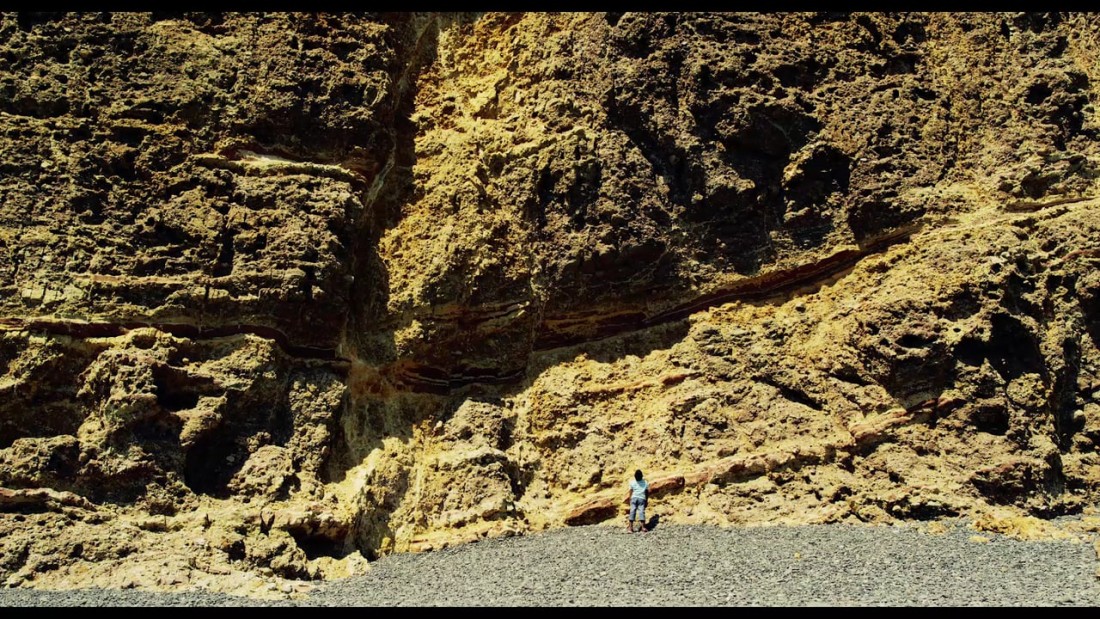Even in late September, Athens’ sun can be sizzling. Despite the relatively low temperatures (26 degrees) , white hot sunlight bounces off of the university buildings , pushing pedestrians into the shade of the colonnade across the street. It was into one of these colonnades I ducked into. The one that arches in front of the cinema ‘Ideal’ – one of five cinemas screening films for the 22nd Athens International Film Festival, ‘Opening Nights’.
This particular event, held on the 25th September, was a screening of five short films all curated by the Athens Film Society, a non-profit organisation. It was a part of a larger series staggered over several screening events across the twelve days of the festival, titled Greek Short Stories. Short films are something of particular importance for the less commercial film businesses of many smaller countries, such as that of Greece, as they are a more affordable way for film-makers to display their talent. For me, it was upon watching these short films that I realised the common hamartia and the simple gift of the short film form – and the direction it needs to take, particularly for such small film industries. Overall, these short films were rather unimpressing in cinematic technique, but not in social impact. They perfectly encapsulates the common downfall of short films that must be overcome, and the common arch that must be maintained in order for them to retain value.
The strength of these short films lay in their comment on the invisible part of Greek society. The saying of the unsaid, with a particularly current focus. The film ‘ Birthday’ (Dir. Dimitris Katsimidis) focused on a version of the Greek family that is unseen in popular entertainment, the single mother caring for her son with cerebral palsy. The film covered the issue of ableism in Greek society and the films theme was contextually relevant with the recent greek government cuts to disability allowance due to the financial crisis. Similarly, the short film ‘Helga Ιs Ιn Lund’ (Dir. Thelyia Petraki), gives an insight into the marginalisation of those suffering with their mental health. Another topical comment after the WHO study that financial crisis provokes a rise in mental health issues within a society. Along the same route; ‘Young Fish’ (Dir. Chrisanthos Margonis) presents the everyday violence and aggressions of the military right throughout the twentieth century to achieve an echoing jab at those who look at Golden Dawn and wonder: ‘what’s the worst that could happen?’. Finally, ‘Cube’ (Dir. Alexandros Skouras) looks at the modern form of Greek diaspora as young people flee their country to dwell across europe due to limited opportunity at home and ‘Ummi’ casts a touching and compelling glance at the refugee crisis that has been washing up on the shores of Greece for the last two years.
The premises of these films are a true merit to the short film form that allows film-makers to comment on untouched topics that matter, without having such a big worry on what return it’ll make for the producer. This proves the short film as an untapped resource for foreign film-makers who no longer only have to make films that perpetuate the international stereotype of themselves in order to be worth making. Furthermore, cut into a short segment – short film have the potential to endeavour into particularly difficult topics without turning into trauma porn. However, as the reel of these five short films depicted, that is a potential of short films that is not often reached. Out of the five films screened it was only the final one, ‘Ummi’ , that was truly holistically effective. The other four, although good on paper, failed to tell a story on the matters they opened up on the screen. They all over-estimated the dramatic capabilities of the short film, expecting the audience to largely assume the story due too much dialogue, over-complicated plots and performances that showed characters as complex but didn’t give the audience the time to figure them out, or to empathise with the complexity. By contrast, the simplicity of ‘Ummi’ – told almost entirely though image – tied context with emotional cinema very well and is exemplary of the quality short film should aspire to. The excerpt of Greek Short Stories I watched was a microcosmic display of the power of short film; setting up quite a punch, but fumbling, and failing to follow through with the force – an observation requiring thought for inspiring short-film makers all-round.



